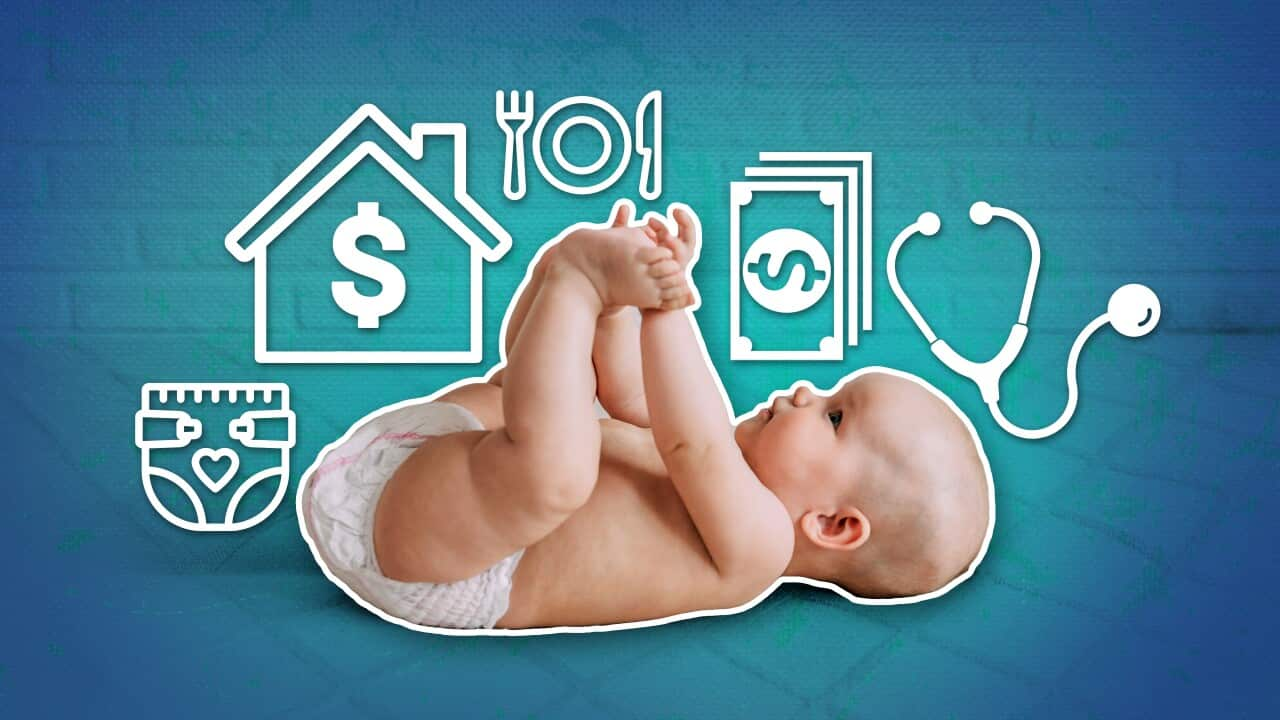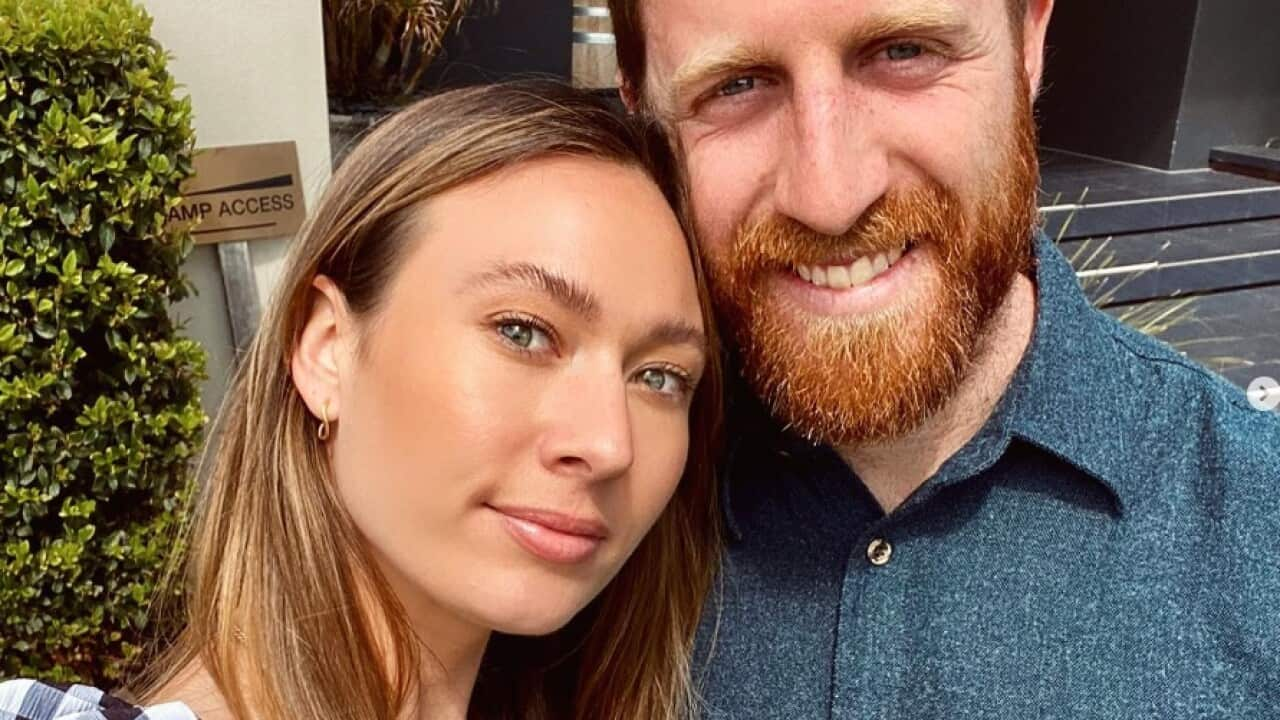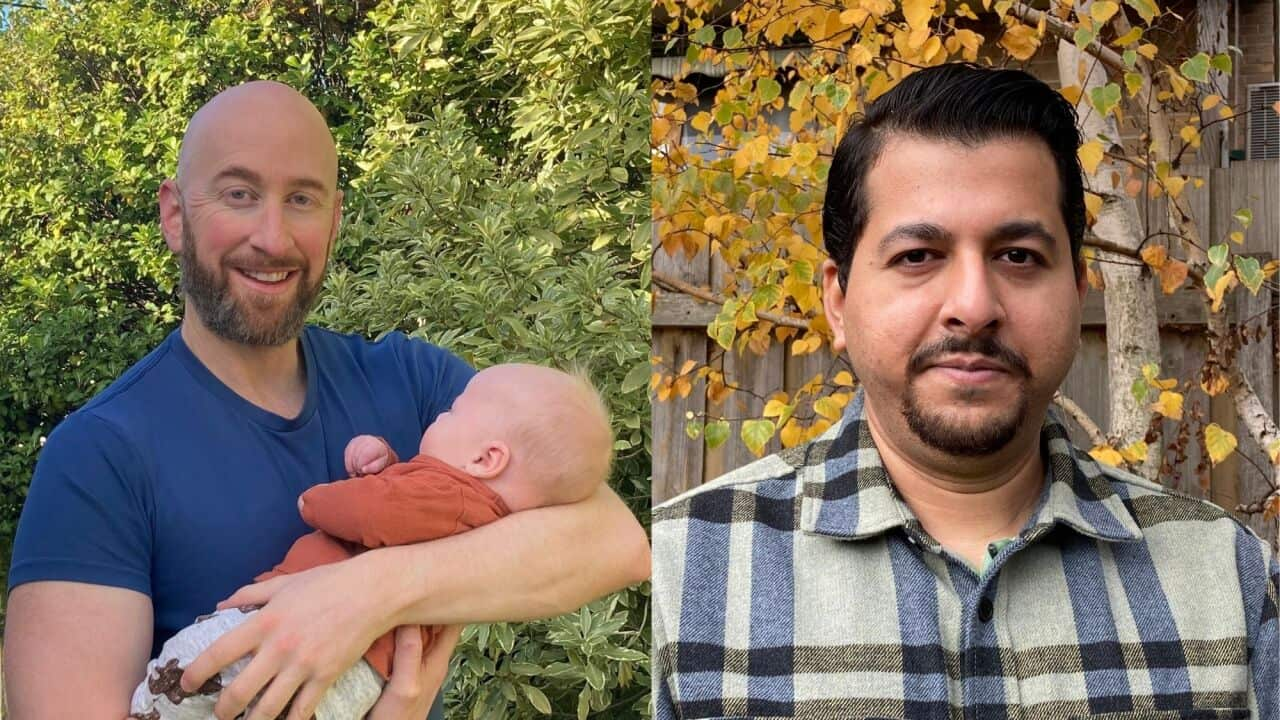Nicole and her wife Jess decided early on in their relationship that they wanted to be parents.
"We got the ball rolling early because we knew it could take a while," says the 38-year-old from Adelaide.
After researching fertility clinics, the pair decided on one that looked same-sex-friendly and started the process, which includes routine screening and counselling sessions to discuss sperm donation.
After choosing a donor and submitting to fertility testing, which produced positive results for both women, they hit a roadblock.
Although Nicole and Jess could not conceive naturally, they were not deemed “medically infertile”, so they were ineligible for Medicare rebates for fertility treatment.
Nicole had to undergo three failed rounds of Intrauterine Insemination (IUI) — commonly known as artificial insemination — to prove her status as “medically infertile” before she could be covered by Medicare. IUI is often the first choice of fertility treatment for same-sex couples.
The pair then decided to switch to In Vitro Fertilisation (IVF), which also proved tricky.
Nicole went through two rounds: the first resulted in no viable embryos and the second failed. She finally had success after a third round of IVF using Jess's eggs — a process known as partner or reciprocal IVF.
"That's how we got our first child," says Nicole.
'Roadblocks to having a family'
Nicole and Jess’s first child Samuel was born in July 2022; their second child Lucy is now five months old.
While the couple are grateful the treatments eventually worked, going through three IUIs and three rounds of IVF left them at least $40,000 out of pocket.
Nicole acknowledges they chose to use donor sperm from the United States, which is more expensive, but says having access to subsidised treatments from the start would have saved the couple about $10,000.
She describes the experience as "a kick in the guts".
Single parents or same-sex couples, or anyone needing to use IVF, really want kids. It doesn't happen by accident. You feel like, 'I'm trying to start a family' and you're already disadvantaged because you can't just do it naturally.Nicole
"It just feels like roadblocks to having a family."
What is the definition of infertility?
Nicole and Jess are not alone in their experience. A sweeping review of Australia's fertility sector is now calling for an expanded definition of infertility to ensure more equitable access to assisted reproductive technologies (ART), particularly IVF.
Medicare rebates for fertility treatment are generally available once a medical cause of infertility is diagnosed. This is currently defined as the inability to conceive after 12 months or more of regular, unprotected intercourse.
Advocates and some fertility specialists say this is delaying or and single people from receiving rebates.
"When you have a same-sex couple, doctors need to prove medical infertility," says Ashley Scott, executive officer of Rainbow Families.
"A lot of our community are not medically infertile … Our families may just need that support of a donor and IVF so that they can fall pregnant."

Nicole and Jess with their son Samuel, who was born in 2022, and their daughter Lucy, who is five months old. Source: Supplied
Around one in three received a rebate once they had been deemed medically infertile following at least three rounds of failed treatments.
"We're hearing a variety of stories from our community depending on which clinic they've gone with [and] which doctor they've been treated by," Scott says.
"Some of our families are having to go through three failed rounds of IUI or IVF before they're given access to the Medicare rebate, while there seem to be other doctors who are happy to look at ways around the regulations for LGBTIQ+ people accessing the rebate and find loopholes."
Scott says the current definition is "discriminatory" against LGBTIQ+ people wanting to start a family.
We should have access to the Medicare rebate just like every other Australian.Ashley Scott
Is Australia's fertility sector fit for purpose?
Almost 109,000 cycles of ART treatments were performed in Australia and New Zealand in 2022, according to the latest annual perinatal epidemiology report from the University of New South Wales.
It found one in three recipient cycles were undertaken by single females or same-sex female couples. The average age of female or (Assigned Female at Birth) patients undertaking ART was 36 years, with one in four aged 40 years.
Approximately 6 per cent of Australian children are born through ART, with most conceived via IVF, according to the review of the sector by the Fertility Society of Australia and New Zealand (FSANZ).
That number is expected to grow significantly over the next decade and broader socioeconomic trend of people starting families later in life, which lowers the chances of natural conception.
"Given that, combined with the current landscape of more than 40 pieces of legislation applying to IVF and ART nationally, we really need to look at how we are fit for purpose — now and into the future," says embryologist Dr Rachel Swift, who co-authored the review with former federal health minister Greg Hunt.
It calls for a national plan for fertility care and the development of uniform laws across jurisdictions and the Commonwealth for ART and IVF access.
Demand for 'non-discriminatory access' to fertility treatment
The review also recommends changing the definition of infertility, which was recently revised by the Australian and New Zealand Society for Reproductive Endocrinology and Infertility (ANZSREI), "as the basis for expanded and non-discriminatory access to IVF and ART".
In particular, its conditions include infertility arising from the "need for medical intervention … to achieve a successful pregnancy either as an individual or with a partner".
The expanded definition has been endorsed by FSANZ and the Royal Australian and New Zealand College of Obstetricians and Gynaecologists.
Dr Petra Wale, president of FSANZ, says this would allow couples to access fertility treatment based on need.
This extension would really improve the inclusiveness and the equitability of reproductive care, irrespective of a person's relationship status, their sexual orientation or even their gender identity.Dr Petra Wale
"It doesn't need to be limited to a very black-and-white definition of unprotected intercourse."
She added: "Having all individuals who would like to have children in future having equal access to fertility treatment if and when they need it is in the best interests of the nation."
Rainbow Families is also calling on the government to adopt the expanded definition, which it hopes would extend to Medicare rebates.
A spokesperson for the Department of Health and Aged Care told SBS News the government will "carefully consider" the FSANZ report.
The government is aware of the ANZSREI announcement and "is now considering the implications", the spokesperson said, adding that national regulation of IVF would need agreement from state and territory governments.
LISTEN TO

Hysterical: Why do some groups have to fight for safe and affordable sexual and reproductive healthcare?
SBS News
30/07/202432:32
Doctors finding workarounds
Infertility specialist Dr Myvanwy McIlveen is among those already offering rebates for same-sex couples. She's the medical director of Genea Newcastle, a provider and an ANZSREI member.
About 15 per cent of McIlveen's patients are now same-sex couples — and the proportion is increasing. She says she's been using her discretion to provide them with rebates for over a decade.
In a press release earlier this year, Genea said it takes a "progressive stance" towards equitable access to IVF treatment.
"Our position is that anyone who needs ART, not just individuals with a medically infertile diagnosis, is entitled to a Medicare rebate," Genea said.
McIlveen says the decision to offer rebates is largely left to providers.
"Some people have decided that the strict definition of infertility for a rebate is medical infertility of 12 months of unprotected sex between a heterosexual couple.
"But I just don't think that in this day and age that flies."
The path through surrogacy: 'We did not qualify'
Like Nicole and Jess, Alex and his husband Raymond had always hoped to become parents.
They were in the early stages of exploring their options when their sister-in-law offered to become a surrogate.
"It was incredible, quite overwhelming, and an opportunity we did not want to turn down," says Alex, a Sydney media executive.

Alex (left) and his husband Raymond (right) pursued surrogacy to have a child, but were not eligible for any Medicare rebates. Source: Supplied / Victoria Owens Photography
After attending an IVF clinic and taking part in counselling, the couple were approved to proceed with surrogacy using a donor egg.
"We were informed that we did not qualify for the Medicare rebate because we were two men and were going through the surrogacy process," Alex says.
"We ended up having seven rounds of IVF over two-and-a-half years with some significant financial impact, but all of which was non-rebatable."
Sarah Jefford, a surrogacy lawyer, explains that under Medicare’s rules, fertility treatment can be provided for the purpose of surrogacy, but there are no available rebates: This comes down to not having a uterus.
"What that means for someone who doesn't have a uterus — and that applies to single men and gay couples — is they may not be allowed to access Medicare rebates if they're trying to create embryos or undergo fertility treatment, which may be for the purpose of surrogacy.
"Simply because they can't carry a baby themselves, they're automatically not allowed access to those rebates," Jefford says.
She stresses that while the rules don't apply specifically to gay couples, they are more likely to be affected, adding: "It applies more to men, but it doesn't not apply to women — it just applies differently."
There is one Medicare rebate available for patients with surrogacy arrangements when "male factor infertility applies".
Jefford says the rules relating to surrogacy are "completely unfair" and need to change.
"I would like to see Medicare rebates available for anybody that needs to access fertility treatment, and that applies whether it's through surrogacy, whether it's same-sex couples or single people," she says.
"The rules should apply to everyone in the same way."
The health department did not respond to SBS News’s question about rebates for the purpose of surrogacy.
Alex believes that making access to rebates more equitable is "essential".
"It does feel like people who are choosing to start a family or have no alternative but to start a family via a surrogate are being discriminated against in the process," he says.
If we have people who really want to start a family and put everything into creating a family unit, we should make it not easier for them, but the same as everyone else.Alex
For now, Alex and Raymond are busy raising their daughter, who is five months old.
"She's the most adorable little girl, and we could not be happier," says Alex, adding: "We are so incredibly grateful that we are able to experience parenthood."
Despite the hurdles, Nicole says she feels much the same.
"You go through IVF, it's all you can think about," she says.
"And then they're here – and you have to put all the money and the heartache of it behind you."













